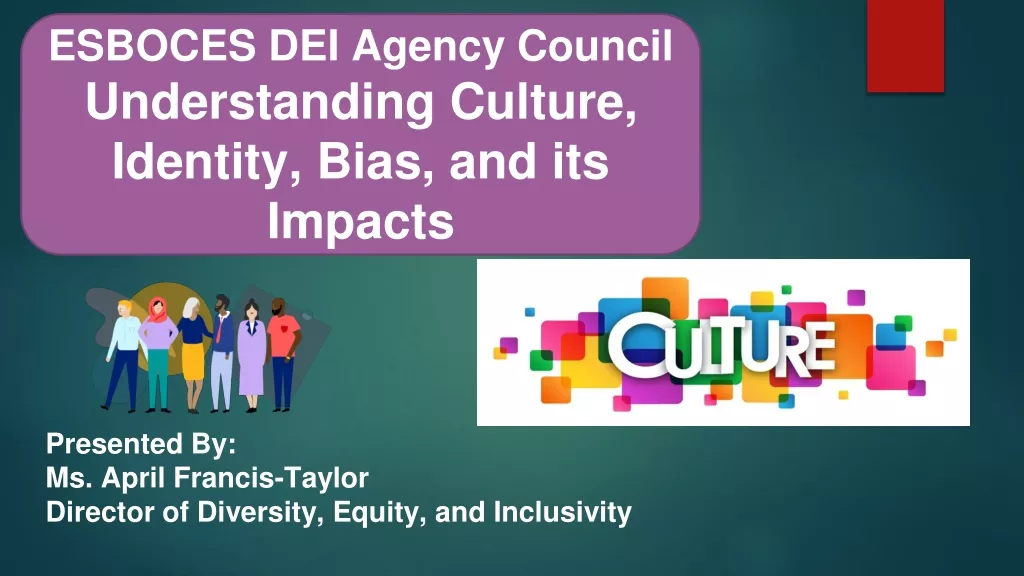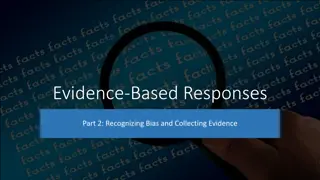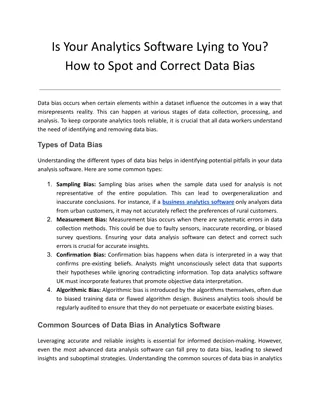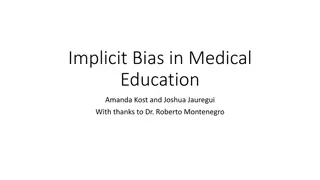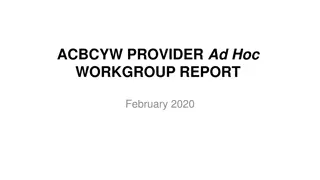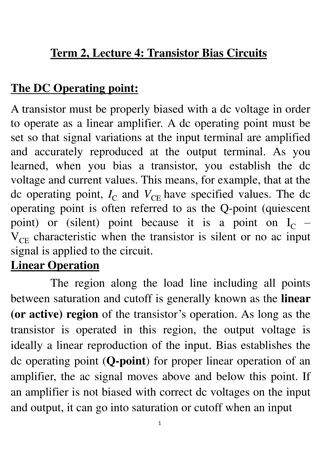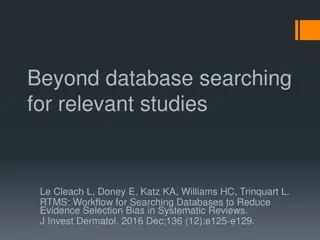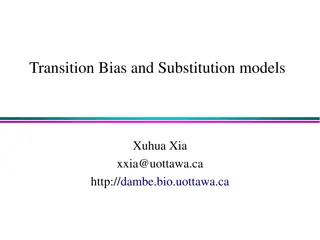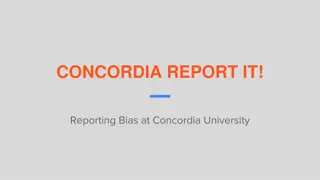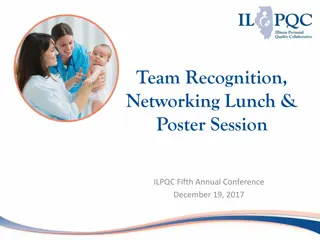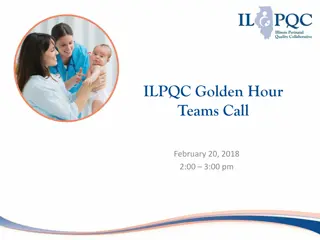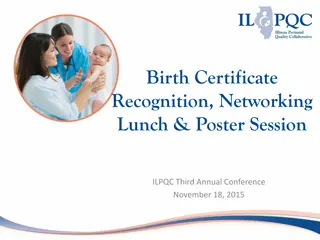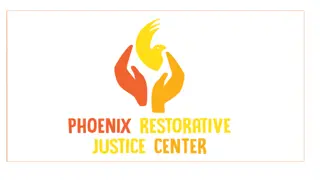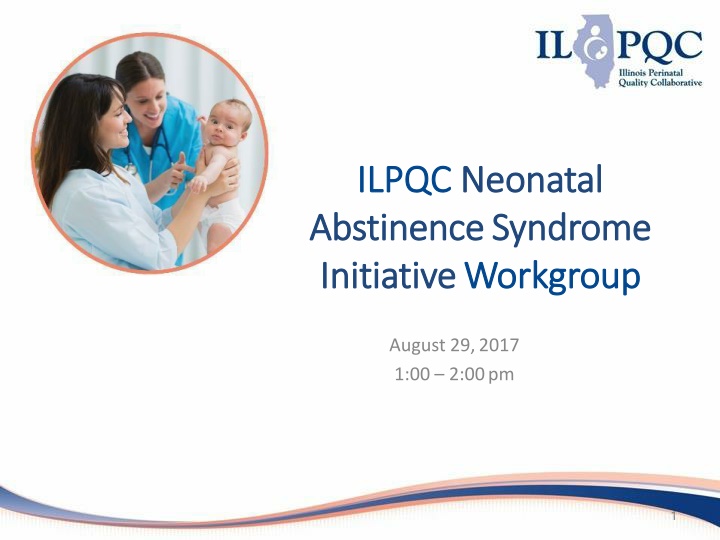
Maternal Concerns and Challenges in Neonatal Abstinence Syndrome Cases
Explore the complexities faced by mothers dealing with illicit drug use, highlighting reluctance to share history and worry about losing children. Learn about partnerships that enhance engagement with perinatal services and the impact of societal stereotypes on mothers.
Download Presentation

Please find below an Image/Link to download the presentation.
The content on the website is provided AS IS for your information and personal use only. It may not be sold, licensed, or shared on other websites without obtaining consent from the author. If you encounter any issues during the download, it is possible that the publisher has removed the file from their server.
You are allowed to download the files provided on this website for personal or commercial use, subject to the condition that they are used lawfully. All files are the property of their respective owners.
The content on the website is provided AS IS for your information and personal use only. It may not be sold, licensed, or shared on other websites without obtaining consent from the author.
E N D
Presentation Transcript
ILPQC ILPQC Neonatal Neonatal Abstinence Abstinence Syndrome Initiative Initiative Workgroup Workgroup Syndrome August 29,2017 1:00 2:00pm
Families at Risk Literature Review
Maternal Concerns and Challenges Illicit drug use can be complicated by chaotic lifestyle May hinder access or commitment to medical and social services Reluctance to share their history Worry about losing children
Partnerships with Moms Engagement with perinatal services enhanced by clinicians establishing respectful, empathetic, non- judgmental, and collaborative relationships Moms can feel stigmatized, guilty Discourage punitive legislation NEJM. Neonatal Abstinence Syndrome 2016
Bad Mothers Moms required government help at times or interventions Stereotype had harmful impact on them personally Didn t want to be seen as unfit over the long term
Bad Mothers DCFS workers were not nice Made moms want to retreat and run Punitive and paternalistic governmental actions are legitimized Children are removed (is this in the best interest of the child?)
Good Mothers Described a mother bear mentality Protective Go to any length to help their kids Acknowledged the importance of bonding with their babies The threat & act of apprehending their children affected the bond
Good Mothers Children s health and needs were paramount Could use drugs and competently care for their children Good mothers admit they need help
Good Mothers Women are also important Want their needs considered/helped Often feel invisible Give her a chance Know she is trying to do her best Moms suggested that foster parents were offered more resources
Thwarted Mothers Paternalism Control Insensitivity All contribute to mother s relapse Does little to interrupt cycle of intergenerational abuse and poverty
Thwarted Mothers Failure to adequately recognize addiction as a health issue Prevents women from getting the help they need Want to see more when mom is struggling to make positive changes Positive steps aren t measured or honored
Addicted Mothers Emotional, physical and sexual abuse Stress of parenting Young, alone ---> drugs Good, bad, thwarted or addicted? Disclosures of substance-abusing mothers. Critical Social Policy, 2008
Suggestions Examine professional judgments Re: risks to children of drug using parents & safeguarding them are far from straightforward Paternalistic and judgmental views Blame moms
Suggestions Assume poor attendance is equivalent to poor motivation May lack resources Substance-miusing women: stigma in the maternity setting. British Journal of Midwifery, 2011
Mothers experiences All moms feel judged Want nurses to recognize their strengths Made moms want to avoid NICU Watched and criticized
Mothers experiences NAS scoring Moms felt the scores were subjective Scores would be lower if nurses liked them Scores vital because they are linked to discharge
Mothers experiences Moms viewed nurses as caring when they connected on a personal level Wanted the nurses to care about them in addition to the baby
Mothers experiences Mother s rightful role in their baby s care Nurses often took over the baby s care Try not to judge mothers of substance exposed infants Journal of Maternal Child Nsg, 2013
Collaboration between parents and providers Described + qualities as feeling heard, understood and respected Described - qualities as feeling dismissed, misunderstood, and demeaned Encounters built trust Encounters = feeling of judgment and blame
Collaboration between parents and providers Providers must enter relationship with parents expressing caring and compassion in addition to competence
Collaboration between parents and providers Women should be treated like any other woman coming for care Introducing a caring/relational framework for building relationships with addicted mothers Journal of Obstetric, Gynecologic, and Neonatal Nursing, 2009
Parent Recommendations 1.Desire pre and post natal education & preparation a. NAS course b. Pharmacologic and non-pharmacologic options
Parent Recommendations Partners in Care Want involvement in care and scoring Rooming in Breast feeding support/policies Providers to understand parent s emotions Guilt, fear
Parent Recommendations Interpersonal interactions and communication Success in hospital experience related to good support by providers Negative experience when parents felt judged or if staff breached confidentiality Sharing private info with other family
Parent Recommendations Want clear, consistent information in understandable terms Want timely updates
Parent Recommendations Hospital Environment & Transitions Routines differ between units Result in discrepancies in caregiving approaches how/when to score
Parent Recommendations External Factors Varying levels of recovery Want staff to understand the diagnosis of addiction Hospital experience was affected by the presence or lack of supportive social network Family and friends
Parent Recommendations A Quality Study of Family Experience with Hospitalization for Neonatal Abstinence Syndrome Hospital Pediatrics, 2016
AAP Policy Statement 2017 Punitive approach during pregnancy is ineffective and potentially harmful May avoid PNC out of fear Supports: focusing on public health
AAP Policy Statement 2017 Primary prevention Improve access to treatment Promote provider-patient relationship NOT a criminal approach
Suggestions/Thoughts Drug use and resources Any newborn wants this future? Safe Haven program Use language of partnership NOT the language of power Develop improvement roadmaps


